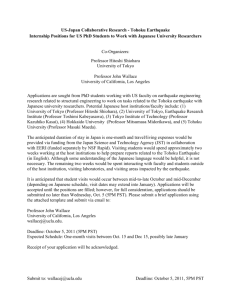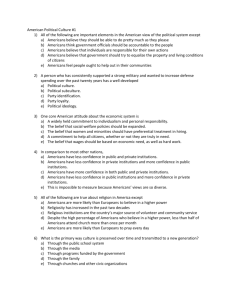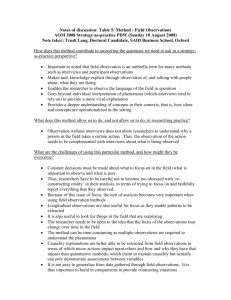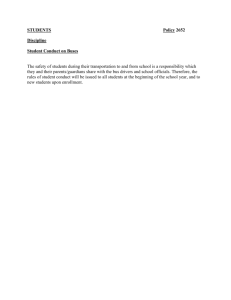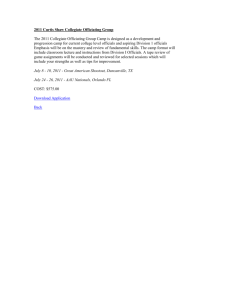Request for Research Grant Proposals
advertisement
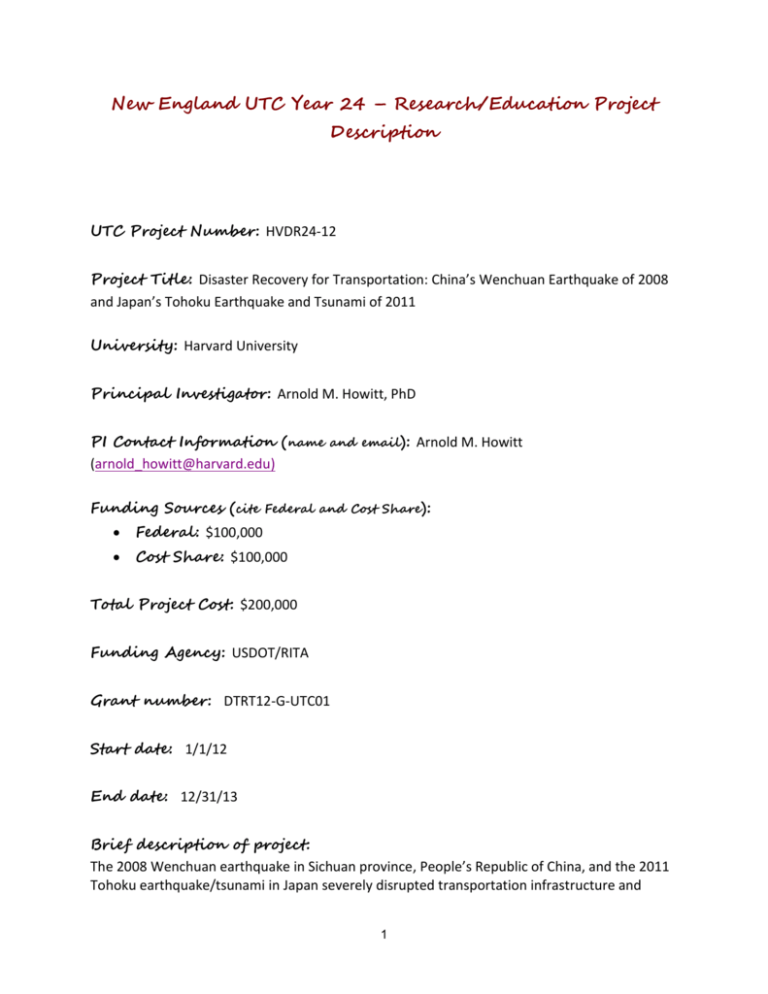
New England UTC Year 24 – Research/Education Project Description UTC Project Number: HVDR24-12 Project Title: Disaster Recovery for Transportation: China’s Wenchuan Earthquake of 2008 and Japan’s Tohoku Earthquake and Tsunami of 2011 University: Harvard University Principal Investigator: Arnold M. Howitt, PhD PI Contact Information (name and email): Arnold M. Howitt (arnold_howitt@harvard.edu) Funding Sources (cite Federal and Cost Share): Federal: $100,000 Cost Share: $100,000 Total Project Cost: $200,000 Funding Agency: USDOT/RITA Grant number: DTRT12-G-UTC01 Start date: 1/1/12 End date: 12/31/13 Brief description of project: The 2008 Wenchuan earthquake in Sichuan province, People’s Republic of China, and the 2011 Tohoku earthquake/tsunami in Japan severely disrupted transportation infrastructure and 1 services in their respective countries. Given the need for (1) emergency transportation to bring assistance to survivors and begin the task of reconstruction and recovery and (2) for restoring regular transportation service following these events, the Chinese and Japanese governments each prioritized restoring and/or reconfiguring transportation infrastructure and operations in the disaster-affected regions. This project examines decision-making and implementation of policies to restore transportation. It gives particular attention to the tension between replicating infrastructure/services that previously existed and using the opportunity of the disaster to rethink the region’s transportation network and operations. In doing so, the project considers the politics of transportation decision making among different stakeholders and between local and central government policy makers; the economics and budget issues in restoring infrastructure; and the operational and management challenges of transportation recovery. Describe implementation of research/education outcomes (or why not implemented): The investigators will conduct research through interviews with public officials and literature reviews and then disseminate their findings through one or two papers published in an academic journal. These publications will be aimed at both scholars and professionals involved in emergency management and transportation. Concepts developed through the research will also be incorporated into teaching that Dr. Howitt does in Harvard degree and executive education programs. Research will be conducted, analyzed, and synthesized through the following tasks, listed here sequentially and with each task’s current status noted in brackets: Task 1: Conduct review of literature relevant to the post-disaster restoration and recovery of transportation services and infrastructure [ongoing]; Task 2: Develop semi-structured, elite interview protocols for Chinese and Japanese officials responsible for restoration and recovery of transportation services and infrastructure in Sichuan Province and the Tohoku region, respectively [ongoing]; Task 3: Conduct interviews with Chinese and Japanese officials responsible for post-disaster transportation restoration and recovery [ongoing: project investigators conducted their first round of interviews with Japanese officials in summer 2012; a second round of interviews with Japanese officials is planned for February 2013; and interviews with Chinese officials are planned for summer 2013]; Task 4: Analyze and summarize data obtained through interviews and from collected literature [pending, following completion of above tasks]; Task 5: Identify core research findings and compose draft articles [pending, following completion of Task 4]; 2 Task 6: Seek outside review of findings from academic specialists and key interview subjects [pending, following completion of Task 5]; Task 7: Revise paper(s) and prepare for publication [pending, following completion of Task 6] Impacts/benefits of implementation The research conducted through this study will be useful to public officials in transportation and emergency management who frame policy approaches to transportation preparedness – especially relating to recovery from severe emergencies – and are responsible for integrating the response of different functional agencies that relate to transportation. It will also be useful to researchers in universities and research institutes concerned with these topics. Study findings should stimulate discussion and debate within the transportation community and permit future research and comparisons in other areas of the country. 3

